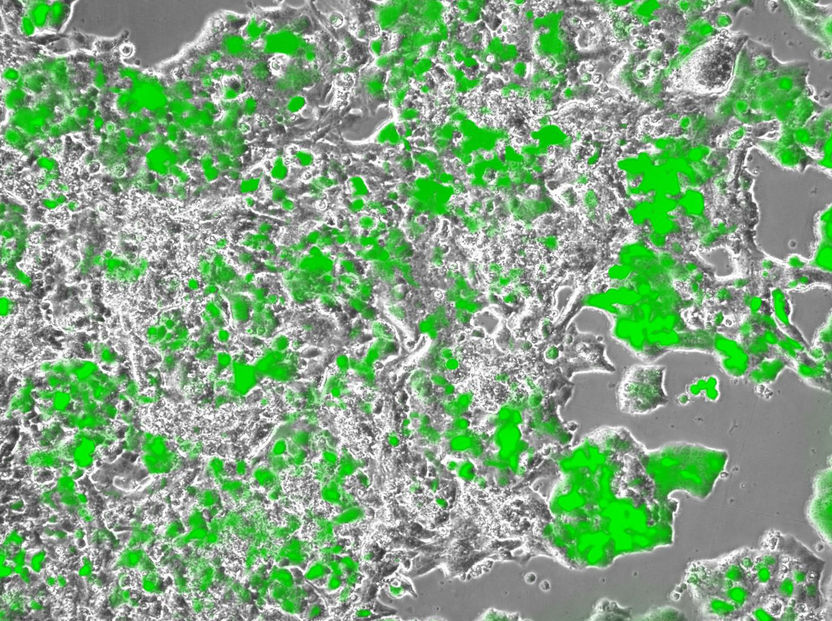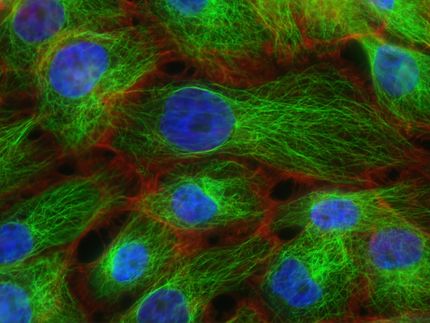Game Theory Explains Social Interactions of Cancer Cells
Advertisement
Researchers at the University of Basel and the University of East Anglia were able to predict the interactions of cancer cells using game theory. Their results have been published by the scientific journal PNAS.

Production of growth factors (IGF-II) as public goods game network: The microscopic image shows how cancer cells (colorless cells) that do not produce IGF-II but need it for their growth reproduce in a population of cancer cells that produces and consumes IGF-II (green cells).
Daniela Ferarro, University of Basel
A tumor consists of a heterogeneous population of individual cells that compete for space and nutrients against each other. However, cancer cells also cooperate in their struggle for survival by sharing molecules, such as growth factors. Cells that do not produce growth factors themselves have a proliferation advantage because they can use the factors produced by neighboring cells without the cost of producing them. What maintains this cooperation between tumor cells remains an open question and continues to obstruct medical therapies that target tumor growth.
Free riding cancer cells
The Public Goods Game is part of game theory and is used in economics as a model to analyze the provision of common goods. There is an imbalance in the consumption of these goods between those that provide them and pay the production costs and those that do not pay but consume anyway - a situation that is known in economics as the free rider problem.
The researchers now applied this model to the cooperation between producing and non-producing members of a cancer cell population, in order to examine if the model is also applicable to biological processes, such as carcinogenesis. Using computer simulations, the researchers were able to calculate the long-term equilibrium between producing cells and “free riding” cells. They then used experiments with pancreatic cancer cells to test their calculations. Their results were in line with the predictions of the game theory model.
“Besides the finding that biological processes can be predicted by using computer simulations, our results suggest that further work on the 'social' interactions among cancer cells may reveal further insight into the dynamics of cancer, and hopefully guide research toward evolutionary stable therapies”, says Gerhard Christofori, Professor at the Department of Biomedicine of the University of Basel.
























































